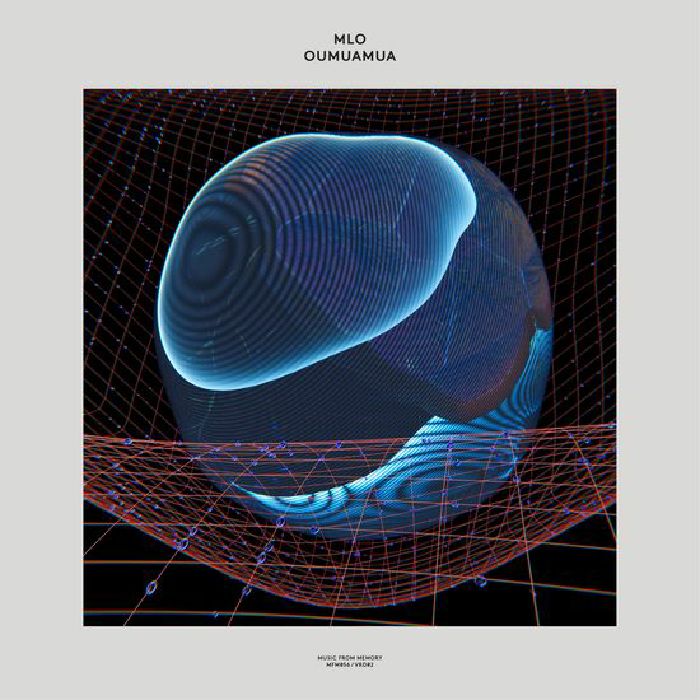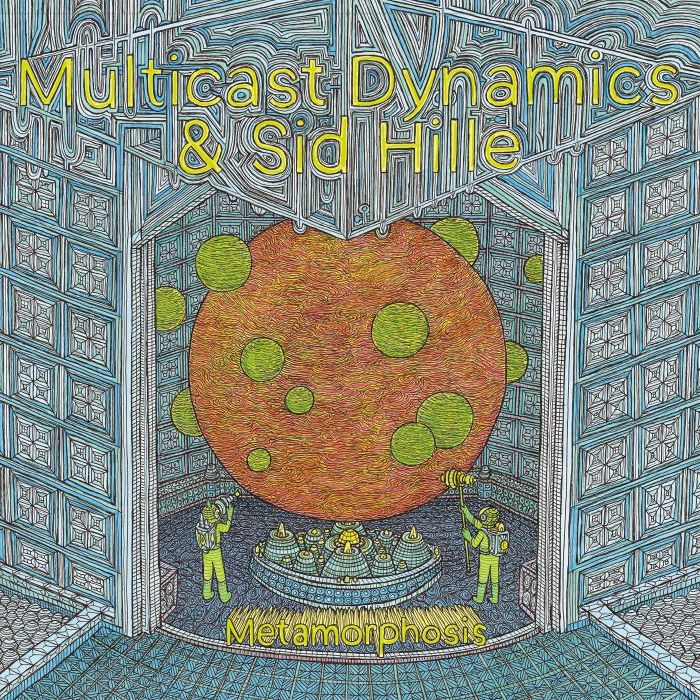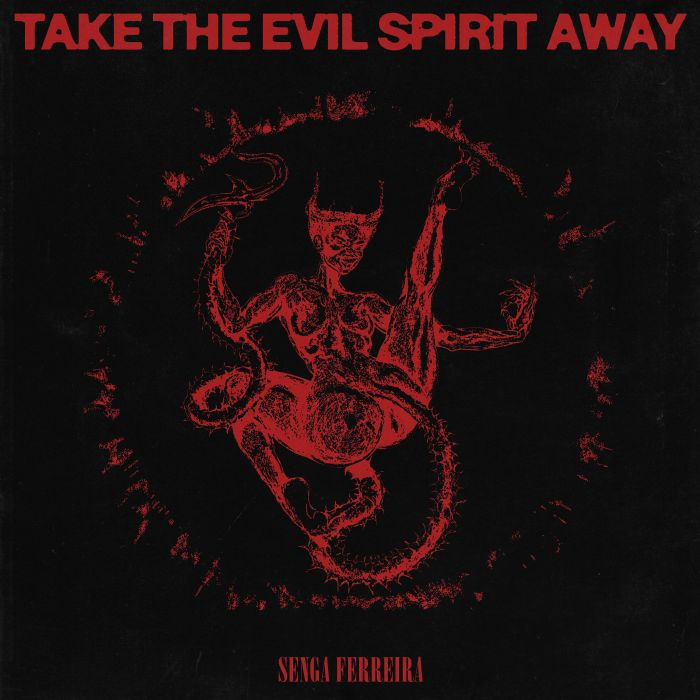The best new albums this week
The records our writers recommend to transport you to long playing heaven

ALBUM OF THE WEEK
Susumu Yokota – Symbol (remastered) (P-Vine)
Susumu Yokota was a ground-breaking figurehead of the electronic music scene that blossomed in Japan during the early ’90s. His abounding musical output won him fans from the most discerning corners of the dance universe and beyond, with the likes of Bjork, Phillip Glass, and Radiohead’s Thom Yorke among those to publicly purr over his work.
His release catalogue runs extraordinarily deep, and as such, it’s both pleasing and unsurprising that his musical legacy continues to endure after his tragic and untimely departure. Earlier this year, a collection of lesser-known house and techno works he recorded under the secret moniker 246 were resurrected by UK label, Cosmic Soup, and now one of his best-loved albums, ‘Symbol’, is granted a thoroughly deserved re-issue. Originally released in 2005 on Lo-Recordings, the album is largely constructed using cleverly manipulated classical music samples, elegantly supported by Yakota’s intelligent programming, precise drums and supple synth work. The result is a gloriously textured meta-ambient treasure.
Before diving into the triumphant wonder of ‘Symbol’, it’s worth taking a moment to look back on the staggering impact Yokota made in his tragically short life. Born and raised in Tokyo, his debut long-player ‘The Frankfurt Tokyo Connection’ was signed to revered techno label, Harthouse, in 1993 and – thanks to a tireless work rate and an uncommon flair for composition – his music quickly drew international attention. Before long, he was invited to play records at benchmark international shows and was the first Japanese artist to play at the Berlin Love Parade. Much of his earliest dance-focused work arrived via benchmark Japanese label, Sublime Records (as well as its sister label, Reel Musiq) and alongside Ken Ishii, he represented the vanguard of his country’s subterranean musical output throughout his career.
With a range that encompassed techno, acid, deep house, drum & bass and breakbeat, Yokota’s output was prolific, to say the least – recording music under all manner of aliases, including Stevia, Ebi, Prism, Ringo, Yin & Yan, Anima Mundi, and 246. He launched his own label, Skintone, in 1998, and in the early 2000s signed to UK labels Leaf and Lo Recordings, from where a large portion of his music would go on to arrive. It was shortly after the turn of the century that Yokota’s health began to deteriorate, marking the beginning of a long battle with illness. He gradually withdrew from public life and performance but continued to create and release music for the remainder of his life, with his final album, ‘Dreamer’, released in 2012. He died on March 27, 2015, aged just 54.
While sampling classical music and layering it over electronic beats has long been known as a tried and tested pathway to sonically impressive results, the manner in which Yokota approached the composition of ‘Symbols’ helps set it apart from similarly themed attempts. Repurposing hidden phrases from the likes of Debussy, Tchaikovsky, and Ravel, he masterfully extracts the emotion of the parts – often without revealing the sources in their entirety. From the whimsical strings of opening track ‘Long Long Silk Bridge’ to the playful exoticism of ‘Traveler In The Wonderland’, the music is often light and penetrable without veering into the unduly saccharine. The ethereal feminine drones of ‘The Plateau Which The Zephyr Of Flora Occupies’ help grant listeners a glimpse into Yokota’s sublime creative mind, while the mesmerising staccato strings, chants, and crescendos of ‘Flaming Love And Destiny’ are no less affecting. The album is permeated by moments of breathtaking beauty throughout – none more enchanting than the dream-inducing glory of ‘Blue Sky And Yellow Sunflower’ – and there are occasional glimmers of effortless abstraction, like the spellbinding aura and complex timing of ‘Capriccio And The Innovative Composer’.
Susumu Yokota was a master in the art of electronic music composition, and ‘Symbol’ sees him compose with a playful sense of freedom and unabated introspection. The re-issue of this timeless album represents a glistening insight into the creative mind of a true pioneer of the craft.
PC

MLO – Oumuamua (Music From Memory)
Following the release of the Virtual Dreams compilation earlier this year, Music From Memory continue their own contribution to 90s ambient techno revivalism with this thoughtful collection from overlooked entity MLO. There’s a degree of sincerity and knowledge that comes with the MFM camp, elevating such releases above the clamour of reissue fever that usually amounts to little more than cynical Discogs scouting.
MLO was a collaborative project from Jon Tye and Peter Smith, and they moonlighted on Rising High amongst other labels in the early to mid 90s. While their output ceased around ’97, they left behind enough albums and EPs for attentive diggers to dust down and delight in. On this compilation, only a small selection of tracks have been released previously – the vast majority appears to be freshly excavated from their archives.
What’s most striking about the sound MLO present on Oumuamua is the apparent embrace of new age ambience. When many of their peers were nudging ambient music in the direction of dystopian abstraction and wilful experimentation, Tye and Smith were committed to an unabashedly beauteous sound. In homage to a small town in Dorset, ‘Wimborne’ opens the album up in a cascade of pastoral synthesis, while ‘Ebb And Flow’ lilts along to cyclical phrases of plucked string (synthesised or sampled, it’s hard to say).
There are some more techno-minded moments, such as monolithic mid-point track ‘Alaksura’ with its analogue blips and bleeps and its follow-up, the nerve-tickling ambient house massage ‘Aqua’ (originally from their debut album 01Hour 01 Minute 01 Second). But plush melodies are the dominant force, and beats come a decided second behind the musical arrangement. Early classic ‘Sleeper’ closes the record out in a perfect full-stop, making no attempt to mask the intention of the music as something lovely to drift off to. It’s the kind of direct approach which runs through every shade of MLO’s work, tastefully surmised on a record which nods to former glories while primarily offering something wholly new for familiar and unfamiliar listeners alike.
OW

Topdown Dialectic – Topdown Dialectic Vol3 (Peak Oil)
Who said computers can’t be funky? The anonymous Topdown Dialectic project calls to mind the West Coast laptop jamming of the mid 00s era, when artists like Sutekh, Safety Scissors and Kit Clayton were transmitting purposefully wonked digital works with one foot in techno and dub traditions, and the other precariously testing the limits of working in the box. It’s a time when audio programming languages like Supercollider were turning waveforms into putty to be moulded and shaped, encouraging a sound art ethic even within a club music framework.
Nearly 20 years on from that heyday, much of that original music has aged hard. The unforgiving, tinny production values of the early laptop techno wave is an aesthetic of its own, though, in the same way the wow and flutter of an analogue synth or rhythmic drift of a vintage drum machine has a charm often imitated but never bettered. Topdown Dialectic has the benefit of modern production methods to lend weight to the overall sound, but there’s a purposeful embrace of crafty DAW aesthetics which stands in opposition to the outboard retro-fetishism permeating most corners of electronic music.
Following an early run of tapes, Peak Oil picked up the TD project for two prior albums, and now this third volume concludes the series, possibly even the project. Consistent threads maintain as you trip through another eight equally sized pieces – the appreciation for glitchy micro matter, mellow dubby impulses and non-linear structures – but there’s now a diminished interest in techno as opposed to more abstract electronic forms. Vol. 3 seeks to push the particular palette of Topdown Dialectic further out, dissembling familiar forms and arriving at a compelling strain of systems music which contently chirrups in its own feedback loop. At times you might be reminded of the nautical wobble of Porter Ricks or Sasu Ripatti’s extravagant minimalism, but there’s a plethora of crisp, crunchy or soft and rounded sounds occupying this work which keep it individual. Like the best systems music, it can sound new every time depending on your angle of approach, and with this as the final volume, it’s a fine time to circle back through a modest but detail-rich catalogue from an unknown entity.
OW

Multicast Dynamics/Sid Hille – Metamorphosis (Astral Industries)
Samuel Van Dijk is a restlessly prolific producer. As VC-118A the Dutch artist is continually offering up fresh and engaging twists on deep techno and electro for Delsin and others, while as Mohlao he’s busy weaving dub techno impressions on labels like Silent Season and Hypnus. Meanwhile, his Multicast Dynamics alias is a force all of its own, with a sizable run of albums on Denovali as well as last year’s excellent Ancient Circuits on Astral Industries. There was a pronounced concept hovering around that particular release concerning early human technologies, but now Van Dijk returns to Astral Industries with a more ambiguous piece drawn from a live performance with multi-instrumentalist Sid Hille.
Van Dijk and Hille performed together at a festival in Finland in 2019, and the resulting material has been edited, pored over and refined into the concise two-part album being released today. It’s a distinct collaboration made up of two contrasting forces – Van Dijk as the sound sculptor and scene-setter, and Hille as the expressive painter. Given their roles, Metamorphosis has an uncomplicated quality to it, as it glides naturally through a spectrum of spaces.
Ambient it most certainly is, but that doesn’t come at the expense of narrative and structure. It feels as though the editing process has been quite pointed to elicit core pieces from the larger performance whole, and these can veer from illustrious musicality to needlepoint sound design and experimentation. By teasing these contrasting energies throughout the run time of the record, Van Dijk and Hille keep you engaged. You might arrive at a point of discordant isolation, only to have a cosy thread of gently toasted Rhodes or plaintive piano emerge from the mist, unfurling outwards and drawing you further in.
OW

Galen Tipton – Goddexx (deluxe edition) (Unseelie)
Galen Tipton is a name we’ve come to associate with a peculiar online scene. Still lacking a definite name, said scene morphed out of the vapors of Soundcloud in the mid-2010s, and has now evolved into a never-ending deluge of digitrap, nightcore-breakcore, and deconstructed gabber remixes of Bladee acapellas. Where hyperpop used to be somewhat restrained, Tipton’s style is less organised, embracing rapid, vapid, instantly gratiying influences like nightcore, new club, and the audio-humour branch of Soundcloud, soundclown.
From the off of ‘Courageous Grieving’, it must be said that Tipton’s new album ‘Goddexx’ sounds rather like Iglooghost. Tipton’s sound palette draws on the same high-def, plastic sound as his, being just as complementary of her own 3D-rendered album cover as Iglooghost’s music is of his own 2D imaginings. But on closer inspection, Tipton’s sound is cuter, more sexual, and – from its various ‘lyrics’, from “dry skin pussing ugly tears” to “creases thoughts twisted guts and pink pulsing flesh” – more concerned with bodily fluids. For that reason, it’s an uncanny debut for Unseelie, everyone’s new favourite fairy-themed label.
A repeated refrain, “choke me”, calls across the track ‘Girl Dick’, while designed sounds from gurgling water to tinkling bells dance rapid-fire in 16th note fashion. No sound doesn’t come from the same microbial culture; ‘Elf Fetish’ is a highlight, upping the pace into epic trap proportions, except for the fact that its snares aren’t technically 808s, and might as well be thunderclaps sent from the Winx Tecna’s magic staff.
Active since 2015, Tipton emerged at the perfect time to capitalise on the screen-addled, net-addicted scene interested in this kind of music, and from ‘Goddexx’, it’s easy to see why she quickly climbed Soundcloud’s ranks and achieve a very large quantity of its most enduring social currency – excitable words of support in its comments section. It’s no surprise this album has elicited everything from an “oof” to a “DAMN” to a “wowww<3333”. And with an progressive electro-metal remix from Giant Claw stealing the show on this edition, you can be sure of an anxious, frolicsome listen.
JIJ

Senga Ferreira – Take The Evil Spirit Away (Trading Places)
Out from the ether comes a devilish EP of hip house and acid juke – ‘Take The Evil Spirit Away’ – from the twinned Belgian minds of beatsmith Louis Shungu and dance aficionado Chris Ferreira. They’ve known each other since meeting at college, but it wasn’t until a crock of free time – presenting itself after COVID-19 struck – that they were able to collaborate. Hailing from different cities and inspirations, we’re very excited by this EP, mainly because its brand of rap- and funk-tinged darkness is rare, and difficult to do right.
Survive to halfway through this album and you’ll make it to ‘As Heroes’, a Detroit techno cut which backdrops a swirling, atonal shepard tone against a murmured vocal sample. “Not jazz music… celestial music… avant-garde or house music…”, a voice stutters drunkenly in an attempt to speak for the track, as if dazed by the various influences imposing on the very album which houses it. It’s the same story with this track’s jazz and dub techno predecessor ‘Take A Chance’; it’s clear that ‘Take The Spirit Away’ is getting at a kind of absent darkness which only a pandemic could inspire. One tainted by abandoned, locked-down streets, the very same which birthed the crude illbient and house jankers heard here.
With this in mind, we believe ‘Tomorrow Never Comes’ does itself justice as a closer, with its too-slow plod drums and broken basses bringing out the lockdown restlessness we’re all too familiar with.
It’s no wonder, then, that the artists insist the abum is “a personal ritual process to expel, unlearn, deconstruct and then to rebuild ourselves”. Its core theme is cosmic fantasy – as is endemic to much of Detroit techno – intersecting on painful realist monologues, rumble-techno immediacy. Our best example is on ‘For The Good Of All’, where spitting 909s grate against a sci-fi vocal sample that pines after a lost social order – calling “to all the rest of humanity.
JIJ

Jerusalem In My Heart – Qalaq (Constellation)
Jerusalem In My Heart founder Radwan Ghazi Moumneh is based in Montreal but – as the name of his project suggests – keeps both the culture and concerns of Lebanon, from where his family fled, very close at hand. Arabic singing and buzuk-playing combine with glitchy electronica and razor sharp sound design to create a fiercely intense, unsettling new form of leftfield music that this reviewer at least has never heard anything like before. Qalaq is an Arabic word with a meaning – Moumneh particularly intends it as “deep worry” – both about the state of the world and specifically Lebanon and Beirut.
Moor Mother, Tim Hecker, Lucrecia Dalt, Greg Fox, Alanis Obomsawin and Rabih Beaini all contribute to proceedings, giving each track distinct flavour although one that’s still contained within the overall dystopian atmosphere. ‘Qalaq 4’ with Rabih Beaini is a clear highlight, the ringing strings of the traditional instrumentation overdriven and phased subtly and surreally. ‘Tanto’ with Lucrecia Dalt, meanwhile, pits ancient sounding Arabic vocals against a throbbing electronic pulse and tense electric pianos. Anyone who thinks electronic music is devoid of emotion needs to hear this record – it’s absolutely dripping in the stuff without being in the least bit sentimental. A vicious experience, but one you’ll want to revisit for sure.
BW

Hjaltalin – Hjaltalin (Hjaltalin)
Cinematic, electronic indie might best sum up the music of Icelandic band Hjaltalín, who have enjoyed a much-loved reputation since 2004. Despite their 15 years of activity, we get the impression that their fourth album – simply self-titled as ‘Hjaltalín’ – is the band’s own favourite, their pet project. In their own words, it’s “like a culmination of all that has come before.”
Comparisons to Sigur Ros would be too easy – rather, this album’s experiments with dark modular synthesis and orchestral ominousness seem to draw on Iceland’s enduring black metal and ambient scenes, testament to the country’s routine emphasis on atmosphere over structure. Imagine a slow, mournfully-stringed Jóhann Jóhannsson OST, with pristine pop vocals laid over the top; that’s the beauty of ‘Wolf’s Cry’, on which Hjaltalín’s male singer, Högni Egilsson, ponders a loss of luck in a universe that, even so, “was made for us”.
Elsewhere, the pop aspect of Hjaltalín’s pokes its head out more on tracks like ‘Baronesse’ and ‘Year Of The Rose’, whose impeccable production plucks at ambient and dream pop, in a hopeful bid to recover lost love – “maybe I was just a little blind”. ‘Hjaltalín’ is just as suited for fans of MØ as it is for Ryuichi Sakamoto – seven years in the making, it’s no wonder this album has such a wide stylistic scope, and is yet able to make each style work.
JIJ
This week’s reviewers: Patrizio Cavaliere, Oli Warwick, Jude Iago James, Ben Willmott.